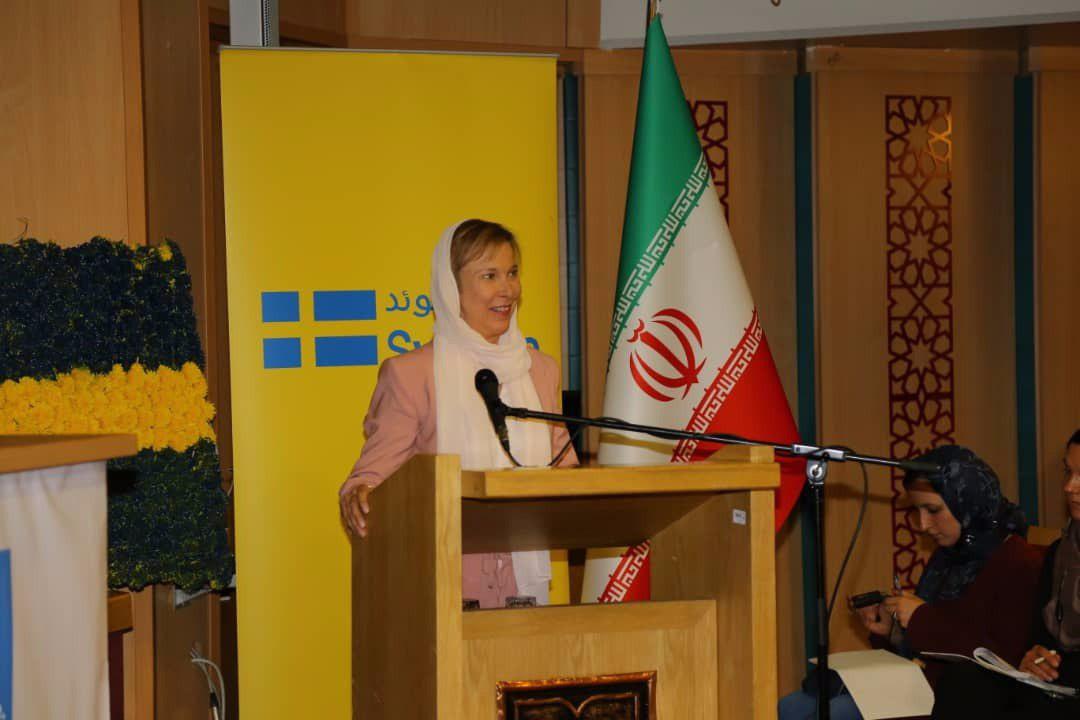During the Tuesday workshop held at Iran’s National Library, the Iranian and Swedish officials talked about ways to eliminate gender imbalance and inequality and promote women’s participation in the labour market.
Addressing the gathering, Swedish Ambassador to Tehran Helena Sångeland referred to a Memorandum of Understanding (MoU) earlied signed between Iran and Sweden on women’s empowerment, and said her country is fully prepared to share its experiences with the Islamic Republic in this field.
Sångeland said Stockholm is committed to promoting women’s participation in the labour market and decision-making, and strongly believe that women must play a bigger role in the government and society at large.
She also expressed Sweden’s interest in share its experiences with Iran in the field of gender mainstreaming.
Promote women’s rights and facilitating their access to resources is the right and smart thing to do, the Swedish diplomat added.
Director-General of the Swedish Institute Annika Rembe also told the gathering that the event is considered as one step further to implement the MoU earlier signed by the Swedish prime minister during his visit to Tehran.
She said Sweden’s main priority is to strengthen women throughout the world, but big challenges require further collaboration.
“This is an issue which poses challenge to all societies, including Iran, Sweden and others,” Rembe said, while highlighting the incredible potential existing in the Islamic Republic for empowerment of women.
In Sweden, women’s participation in the labour market was made possible thanks to its parental leave system, she noted.
She also elaborated on the important reforms made by the Swedish government during the past decades to promote gender parity in the European state.
Rembe described reforms as a prerequisite to Sweden’s economic development, stressing that the Swedish society is based on inclusion and equality.
She said hopefully 43% of mayors and 40% of managers of public sector in Sweden are women.
However, she added, there are still areas in which Sweden needs to improve itself.
She expressed regret that only 16% of CEOs in private companies of Sweden are women, and emphasized that the figure needs to be improved.
26% of professors are women, and men enjoy more opportunities for funds and resources, she said, adding that these resources must be allocated gender-neutrally.
Following the speeches delivered by the Swedish side, Zahra Shojaei, a former advisor to the Iranian president on women affairs, and Fatemeh Tondguyan, an advisor to the Iranian oil minister on women affairs, elaborated on Iran’s experiences in the field of promoting women’s rights after the 1979 Islamic Revolution.
The day-long International Workshop on Gender Mainstreaming was attended by several Iranian and Swedish officials, including Iranian Vice-President for Women and Family Affairs Massoumeh Ebtekar and President Hassan Rouhani’s Special Assistant for Citizens’ Rights Shahindokht Mowlaverdi.
